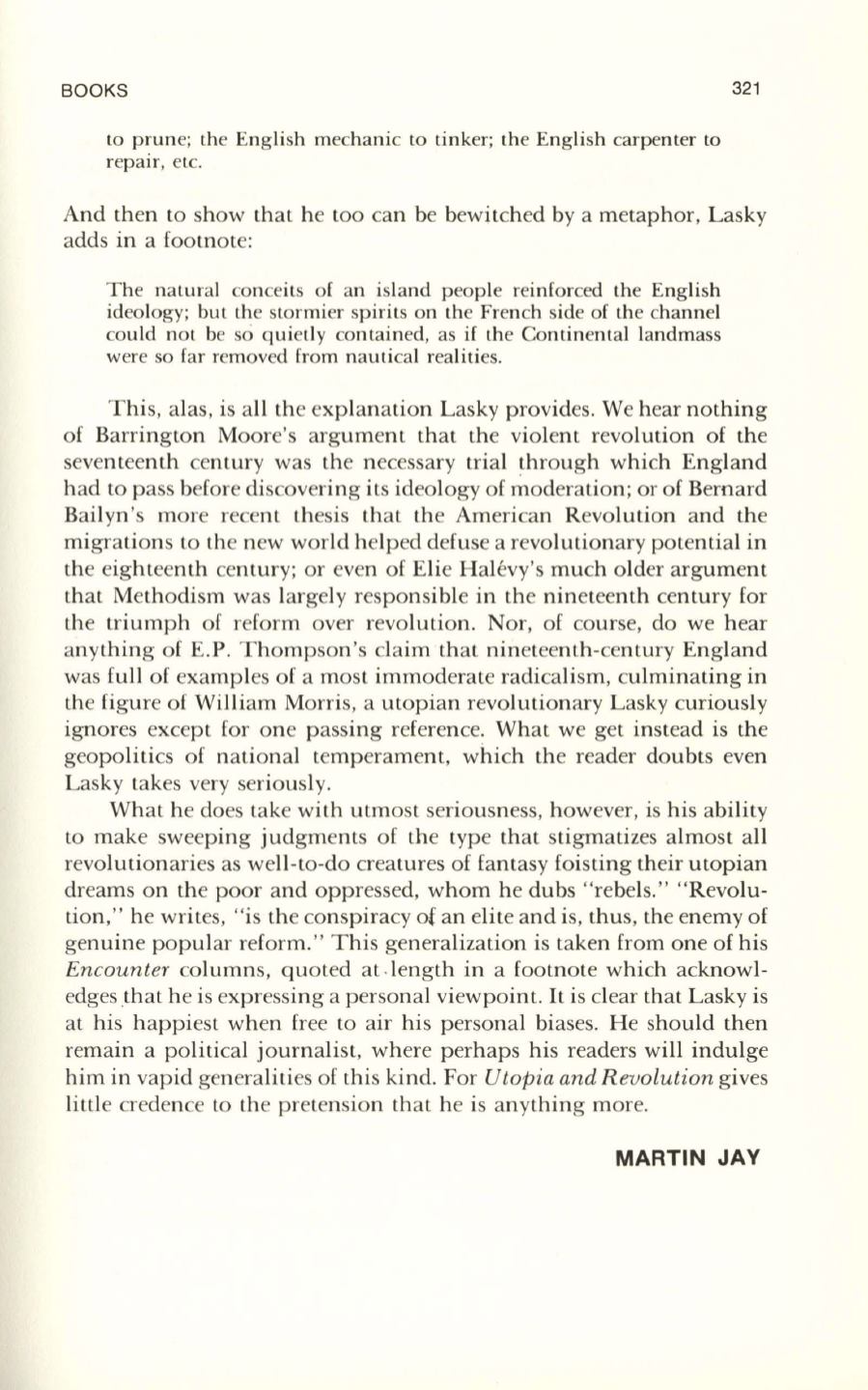
BOOKS
to
prune; the English mechanic to tinker; the English carpenter to
repair, etc.
321
And then to show that he too can be bewitched by a metaphor, Lasky
adds in a footnote:
The natural conceits of an island people reinforced the English
ideology; but the stormier spirits on the French side of the channel
could not be so quietly contained, as if the Continental landmass
were so far removed from nautical realities.
This, alas, is all the explanation Lasky provides. We hear nothing
of Barrington Moore's argument that the violent revolution of the
seventeenth century was the necessary trial through which England
had to pass before discovering its ideology of moderation; or of Bernard
Bailyn's more recent thesis that the American Revolution and the
migrations to the new world helped defuse a revolutionary potential in
the eighteenth century; or even of Elie Halevy's much older argument
that Methodism was largely responsible in the nineteenth century for
the triumph of reform over revolution. Nor, of course, do we hear
anything of E.P. Thompson's claim that nineteenth-century England
was full of examples of a most immoderate radicalism, culminating in
the figure of William Morris, a utopian revolutionary Lasky curiously
ignores except for one passing reference. What we get instead is the
geopolitics of national temperament, which the reader doubts even
Lasky takes very seriously.
What he does take with utmost seriousness, however, is his ability
to make sweeping judgments of the type that stigmatizes almost all
revolutionaries as well-to-do creatures of fantasy foisting their utopian
dreams on the poor and oppressed, whom he dubs "rebels." "Revolu–
tion," he writes, "is the conspiracy of an elite and is, thus, the enemy of
genuine popular reform." This generalization is taken from one of his
Encounter
columns, quoted at .length in a footnote which acknowl–
edges that he is expressing a personal viewpoint.
It
is clear that Lasky is
at his happiest when free to air his personal biases. He should then
remain a political journalist, where perhaps his readers will indulge
him in vapid generalities of this kind. For
Utopia and R evolution
gives
little credence to the pretension that he is anything more.
MARTIN JAY


